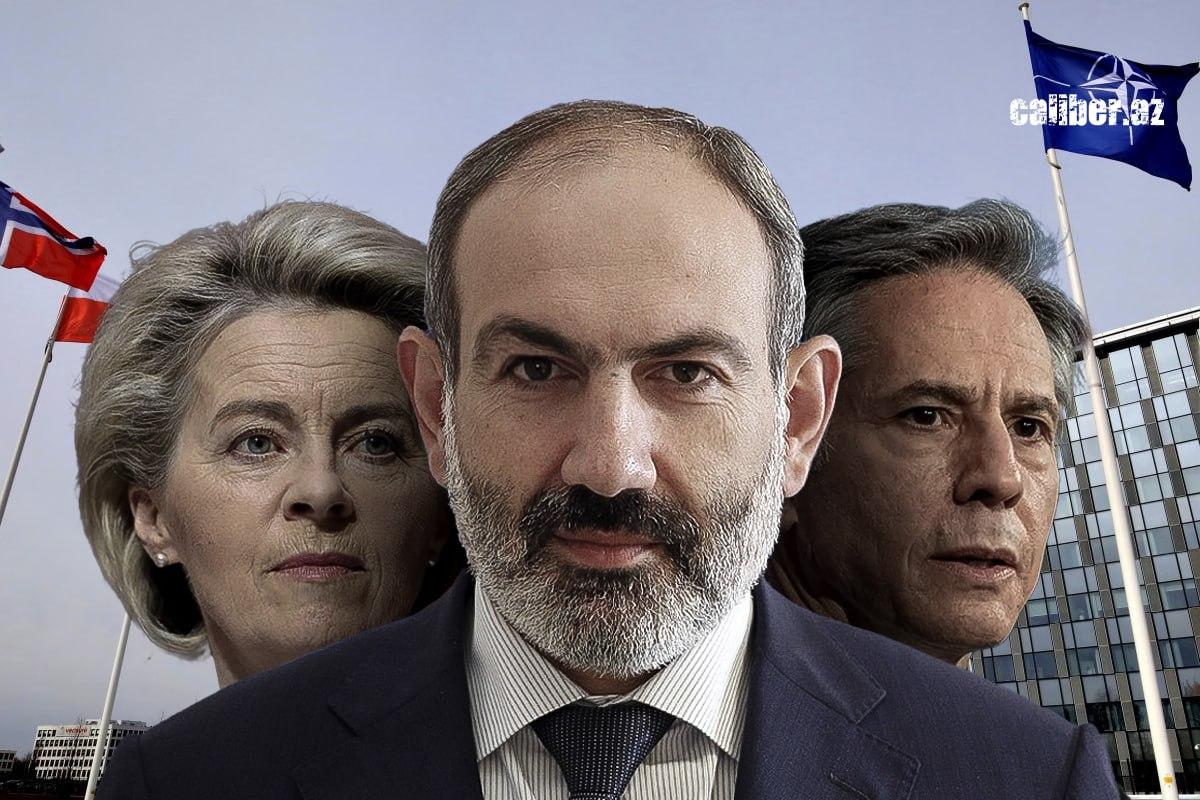Armenia’s uncertain future amid Western and Russian tensions Economic and political tightrope
This week, Zvartnots Airport in Yerevan held a ceremony marking the departure of Russian border guards who had been overseeing border control operations in Armenia. The decision to terminate this cooperation was made by the Armenian side, which officially informed Russia on March 6, 2024.
Armenian Prime Minister Nikol Pashinyan described this move as a "practical matter rather than a political or geopolitical issue." However, observers have a different perspective. Analysts from Russia, Armenia, and abroad all agree that the withdrawal of the Russian border guards signifies another step by the current Armenian government in distancing itself from Russia.
According to US Assistant Secretary of State for European and Eurasian Affairs James O'Brien during Senate Foreign Relations Committee hearings, the United States is working to create conditions for a rupture in the traditionally strong Armenia-Russia relations and welcomes the "bold steps" taken by Armenian Prime Minister Nikol Pashinyan in this regard.
Under this policy, the US Congress has already approved a budget for the fiscal year 2025, which includes $65 million in aid to Armenia for "reforms" and "Euro-Atlantic integration." However, it is clear that this funding will likely be used to rearm the Armenian military.
According to the Carnegie Center experts, the process of deteriorating relations between Russia and Armenia began in 2018 and accelerated in 2022. Formally, the countries continue high-level contacts, and their economic ties have even strengthened, with Yerevan becoming a crucial transit hub linking Russia and the West. Top officials from both nations avoid public criticism of each other, and official statements still use the language of partnership. However, second-tier politicians and experts are much more straightforward, openly describing the situation as involving "hostile actions."
Between 2019 and 2023, the percentage of Armenians who viewed their relationship with Russia as "good" dropped dramatically from 93 per cent to 31 per cent. France is now considered Armenia's primary foreign policy partner, with the United States in second place. The Pashinyan government is actively working to sever existing ties with Russia.
According to Russian statistics, in 2020 there were 946,000 Armenians living in Russia, with the number potentially reaching up to 2.5 million when including labor migrants. The current Armenian authorities are directing the flow of Armenian guest workers and students toward the West. In 2023, Pashinyan established a Foreign Intelligence Service, given that most members of the Armenian National Security Service had been trained at FSB academies. Measures are also being taken to reduce Russian influence within the Armenian armed forces.

In the international arena, the Pashinyan regime has taken landmark steps demonstrating an anti-Russian drift. It meets with Volodymyr Zelenskyy and Svetlana Tikhanovskaya, freezes Armenia's participation in the Collective Security Treaty Organization (CSTO), and deploys an EU-led spy mission on Armenian territory.
In turn, the European Parliament in March 2024 welcomed Armenia's desire to seek European Union candidate status. The following month, US Secretary of State Antony Blinken, European Union High Representative Josep Borrell and European Commission President Ursula von der Leyen delivered an unequivocal message of military and political support to Pashinyan at a meeting.
US Assistant Secretary of State James O'Brien, promised Armenia expanded strategic relations during his visit to Yerevan this June. The European Union promised Armenia €270 million over four years, in addition to already existing infrastructure projects.
It is important to highlight the distinction between "provided" and "promised." As stated by Russian Deputy Foreign Minister Mikhail Galuzin, "no Western country can replace us."
Currently, 3,500 Armenian companies are owned by Russian entities. These include the Zangazur Copper Molybdenum Combine, Armenia’s largest corporate taxpayer, as well as railways, pipelines, and mining companies. Armenia also heavily relies on Russian imports. According to the World Bank’s 2024 report, Russia accounts for 98 per cent of Armenia’s imports of wheat, wheat flour, sunflower oil, and other grains; nearly 35 per cent of all agricultural imports; and 39per cent of poultry in 2021.
Additionally, Russia supplies over 50 per cent of Armenia’s imports of bread, pasta, and bakery products. Russia is also the main source of fertilizers for Armenia, contributing 38 per cent in 2021, which supports local food production. Consequently, sudden policy changes and disruptions in supplies from Russia could pose a significant threat to Armenia’s food security.
Armenia is highly dependent on Russia for its energy resources. In 2022, Yerevan imported 85 per cent of its gas from Russia, which is also crucial for operating thermal power plants. Experts point out that "Armenia relies on fuel imports from a single country to generate nearly 70 per cent of its electricity, raising concerns about supply diversification."
As foreign observers assess Armenia's political situation, they note that the country is in a state of zugzwang—a chess position where any move leads to a disadvantage—due to unresolved issues with Baku and Ankara. Prime Minister Pashinyan aspires to align with the West and integrate into the EU, but economic and geopolitical factors work against him.
A confrontational path with Russia is likely to lead to inevitable economic difficulties. Western military and economic aid might only exacerbate regional tensions, fueling an arms race that Yerevan is ill-equipped to win.
Thus, the current course of the Armenian government is not a solution to the deadlock but rather a precarious balancing act between the risks of war, confrontation with Russia, and the potential to become a "failed state" in the Caucasus.
The views and opinions expressed by guest columnists in their op-eds may differ from and do not necessarily reflect the views of the editorial staff.








